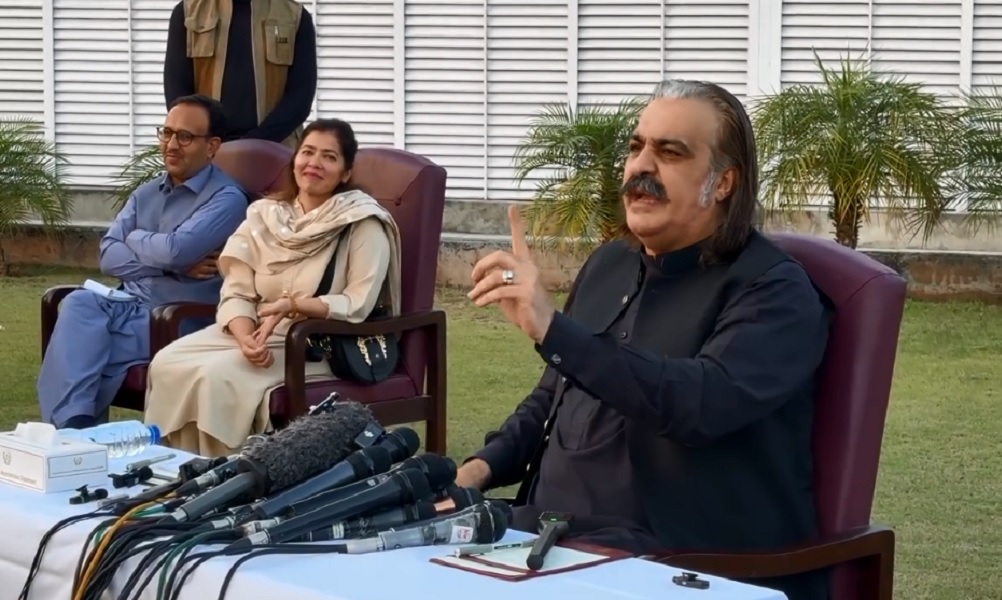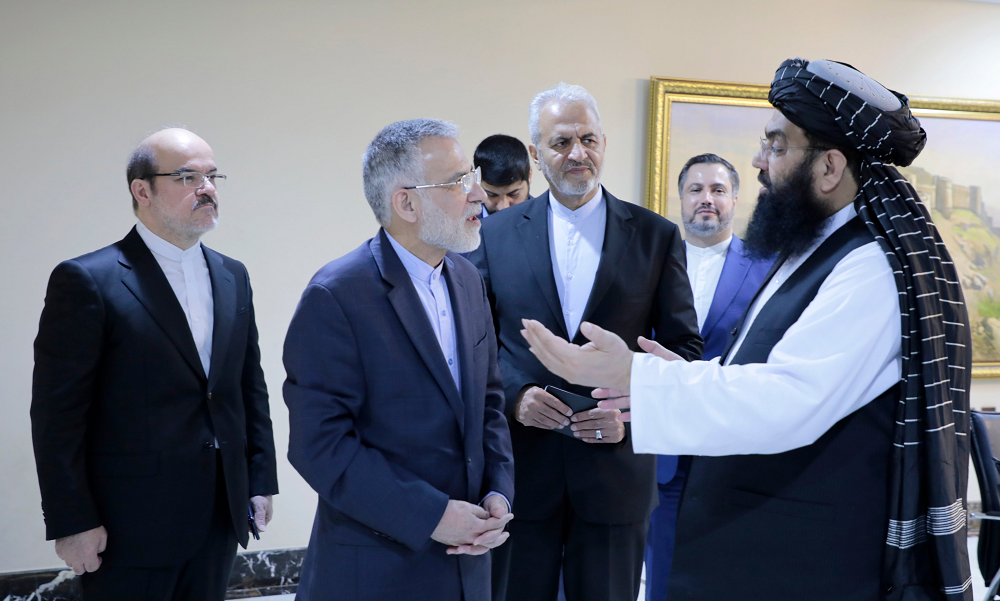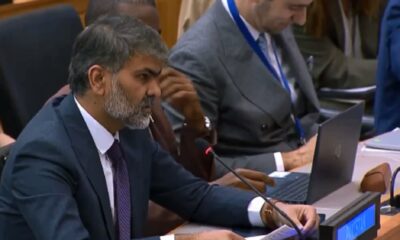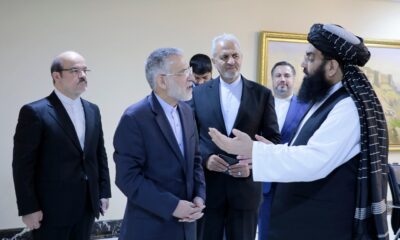Latest News
SIGAR finds single key factor to ANDSF collapse was withdrawal of US troops

The United States’ Special Inspector General for Afghanistan Reconstruction (SIGAR) has found that the single most important factor behind the Afghan National Defense and Security Force’s (ANDSF) collapse in August last year was the US’ decision to withdraw military forces and contractors from Afghanistan.
This decision was taken after the US signed an agreement in February 2020, under former president Donald Trumps administration, with the Islamic Emirate of Afghanistan (IEA) – an agreement adhered to by President Joe Biden.
In their latest report, SIGAR stated that due to the ANDSF’s dependency on US military forces, these events destroyed ANDSF morale.
The ANDSF had long relied on the US military’s presence to protect against large-scale ANDSF losses, and Afghan troops saw the United States as a means of holding their government accountable for paying their salaries.
The US-IEA agreement made it clear that this was no longer the case, resulting in a sense of abandonment within the ANDSF and the Afghan population, SIGAR reported.
The agreement set in motion a series of events crucial to understanding the ANDSF’s collapse, SIGAR stated.
Among those included a drop in the number of US airstrikes; the fact that ANDSF remained reliant on the US military, especially as “the United States designed the ANDSF as a mirror image of US forces.
“This created long-term ANDSF dependencies. The United States created a combined arms military structure that required a high degree of professional military sophistication and leadership,” SIGAR stated adding that the ANDSF had stockpiles of US-provided weapons and supplies, but did not have the logistics capabilities to move these items quickly enough to meet operational demands and had to rely on a thinly-stretched Afghan Air Force to do so.
“As a result, ANDSF units complained that they did not have enough ammunition, food, water, or other military equipment to sustain military engagements against the Taliban (IEA).
“Additionally, the Afghan government failed to develop a national security strategy and plan for nationwide security following the withdrawal of US forces,” SIGAR stated adding that instead, former president Ashraf Ghani frequently changed ANDSF leaders and appointed loyalists, while marginalizing well-trained ANDSF officers aligned with the United States.
The constant turnover weakened military chains of command, trust, and morale in the ANDSF. “Young, welltrained, educated, and professional ANDSF officers who grew up under US tutelage were marginalized and their ties to the U.S. became a liability.”
SIGAR also stated that the United States created more long-term dependencies by providing the ANDSF with advanced military equipment that they could not sustain and that required a US military or contractor presence and that the US lacked any real way to measure the ANDSF’s development.
“The metrics DOD used were inconsistent and unable to measure the development of ANDSF capabilities and capacities over time,” SIGAR stated.
SIGAR also stated that while ANDSF members have either left Afghanistan, or are in hiding, there are those who “have joined extremist groups in Afghanistan.”
Latest News
Pakistan urges global community to block arms flow to militant groups in Afghanistan

A Pakistani diplomat on Saturday called on the international community to block the flow of modern and sophisticated weapons to militant groups in Afghanistan.
“Terrorist armed groups are in possession of billions worth of illicit arms abandoned in Afghanistan,” Syed Atif Raza, a counsellor at the Pakistan Mission to the UN, told an Arria-Formua meeting of the UN Security Council, convened by Sierra Leone.
“We call upon our international partners to recover the vast stockpile of abandoned weapons, prevent their access to armed terrorist groups and take measures to close this thriving black market of illicit arms,” he said.
Pakistani officials have repeatedly claimed that attacks in the country are planned in Afghanistan and that militants use weapons left behind by foreign forces.
The Islamic Emirate, however, has denied the claim, saying Afghanistan is not responsible for Pakistan’s “security failure”.
Latest News
Gandapur says no Afghan refugee will be ‘forcefully’ expelled from Khyber Pakhtunkhwa

Amid rising tensions over Pakistan’s repatriation plans for illegal Afghan nationals, Khyber Pakhtunkhwa Chief Minister Ali Amin Gandapour said on Friday that no refugees will be forcibly deported from the province.
“We will not allow any Afghan refugee to be expelled by force from Khyber Pakhtunkhwa. We stand firmly against such inhumane deportations,” Gandapur said at a press conference.
The remarks came as the Pakistani government ramps up efforts to repatriate undocumented Afghan refugees and Afghan Citizen Card (ACC) holders, following the expiration of the voluntary return deadline on March 31, 2025.
“The past situation, where Afghan refugees, including women and children, were stranded at the border, tarnished Pakistan’s image,” Gandapur said, reaffirming the provincial government’s commitment to a dignified repatriation process.
“We are setting up camps for voluntary repatriation, and anyone wishing to return will be helped. However, we will not forcibly expel any Afghan refugee,” he stated.
Afghans holding Afghan Citizen Cards (ACC) — issued by Pakistan authorities and held by 800,000 people, according to the United Nations — face deportation to Afghanistan after the deadline.
More than 1.3 million Afghans who hold Proof of Registration (PoR) cards from the UN refugee agency, UNHCR, are also to be moved outside the capital Islamabad and neighbouring city Rawalpindi.
Latest News
IEA has 46 township plans for returnees, minister tells visiting Iranian official

The Islamic Emirate of Afghanistan (IEA) has 46 township plans for returning refugees, Acting Minister of Refugees and Repatriation Mawlawi Abdul Kabir told a visiting Iranian diplomat in Kabul, calling on Tehran to give refugees time to return.
According to a statement issued by the ministry on Saturday, Abdul Kabir said during the meeting that Afghanistan and Iran are friendly neighbors that have many commonalities.
He stressed the need to further develop and strengthen relations between the two countries and said that the frequent visits of high-ranking Iranian officials show that Tehran wants positive and friendly relations with Afghanistan.
Abdul Kabir thanked Iran for its assistance and hosting of Afghan refugees, saying that Iran and Pakistan have been hosting Afghan refugees for the past few decades. He called for more leniency in the treatment of migrants.
He said that the Islamic Emirate is preparing a mechanism to provide legal documents for those migrants whose legal residence in Iran has expired.
In the meeting, Mohammad Reza Bahrami, Iran’s new Assistant Minister and Director General for South Asian Affairs at the Foreign Ministry, invited Abdul Kabir to visit Tehran, and called for repatriation plan to be shared before the trip.
He stressed on the humane treatment of Afghan refugees and appreciated the Islamic Emirate’s initiative to build 46 townships, calling it an important step forward for the return of refugees.
Bahrami noted that there are currently eight million Afghan reguees living in Iran, of whom four million are undocumented or have their residence expired.
-

 Latest News4 days ago
Latest News4 days agoAfghanistan’s reconstruction is in the interest of EU: Uzbek president
-

 Latest News4 days ago
Latest News4 days agoUS won’t rest until all Americans detained in Afghanistan brought home: Rubio
-

 Latest News3 days ago
Latest News3 days agoMinistry of Economy calls on US to release Afghanistan’s frozen funds
-

 Latest News4 days ago
Latest News4 days agoBulgaria brings five people to trial over deaths of 18 Afghan migrants
-

 Latest News3 days ago
Latest News3 days agoPakistan ‘extends’ deadline for a week for Afghans to leave the country
-

 Regional5 days ago
Regional5 days agoChina launches military drills around Taiwan, calls its president a ‘parasite’
-

 Business4 days ago
Business4 days agoGold climbs to record high as tariff worries bolster safe-haven demand
-

 Sport3 days ago
Sport3 days agoIPL 2025: Batters in race for prestigious Orange Cap

























